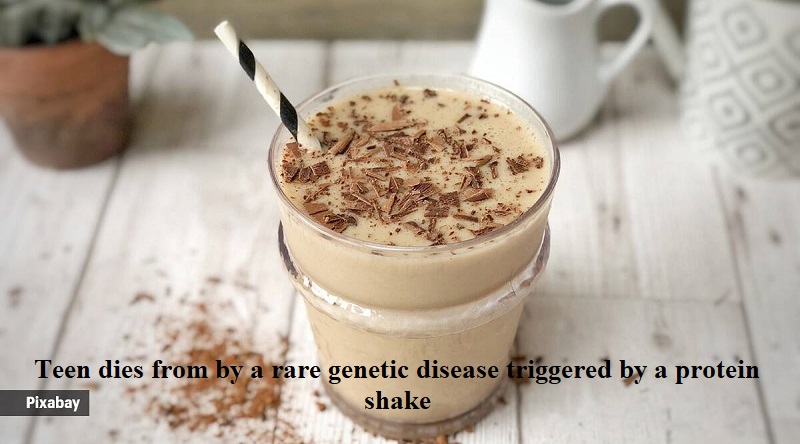
In 2020, a 16-year-old boy named Rohan Godhania, of Indian origin, tragically suffered irreversible brain damage and passed away after consuming a protein shake in Ealing, west London. At the time, the exact cause of his death could not be determined.
Recently, tests conducted on the recipient of Rohan’s liver, who started experiencing seizures, revealed that protein shakes triggered a rare genetic disease. Consequently, a coroner has called for health warnings on protein shakes sold in supermarkets.
According to the DailyMail, the teenager fell ill on August 15, 2020, after consuming the protein shake and died three days later at West Middlesex Hospital. However, the underlying cause of his sudden illness, a rare genetic disease called ornithine transcarbamylase (OTC) deficiency, could not be identified as his organs had been donated for transplantation.
Several months later, when the recipient of Rohan’s liver began having seizures, a biopsy of the organ revealed that Rohan had OTC deficiency, an extremely rare genetic disorder categorized as a urea cycle disorder.
OTC deficiency belongs to a group of genetic disorders known as urea cycle disorders, characterized by a deficiency in one of the six enzymes responsible for removing ammonia from the bloodstream. Symptoms of OTC deficiency include vomiting, refusal to eat, lethargy, and coma.
The inability to break down ammonia can result in its accumulation in the bloodstream, leading to potentially life-threatening levels, particularly when triggered by a protein load. OTC deficiency is exceptionally rare, affecting approximately one in 50,000 to 80,000 individuals.
In his preliminary view, Coroner Tom Osborne highlighted the necessity for health warnings on protein shake packaging. He stated, “Concerning these protein drinks, my preliminary view about them is that I ought to write to one of the regulatory authorities that some sort of warning ought to be put on the packaging of these drinks because, although OTC is a rare condition, it can have harmful effects if someone drinks and it causes a protein spike.”
Professor Finbar O’Callaghan, a specialist in pediatric neurology at the Institute of Child Health, University College London, supported the call for action, considering it potentially life-saving.
During the inquest into Rohan Godhania’s death, it was revealed that his organ had been approved for transplantation without determining the cause of death. This critical error led to the recipient developing a severe illness, establishing a connection between the two cases.
An independent expert identified the link between Rohan’s death and the recipient’s seizures, as both individuals exhibited similar symptoms. Lawyers representing Rohan’s family raised concerns about missed opportunities to screen him for ammonia levels, which could have revealed his urea cycle disorder.
Professor O’Callaghan, speaking at the inquest, supported the lawyers’ suggestion and believed that if an ammonia test had been conducted during Rohan’s hospital admission, it was “possible” for him to have survived.
The professor criticized the decision made by a specialist hospital to reject Rohan’s referral to their pediatric neurological team based on his age classification as an adult patient by West Middlesex Hospital. He argued that Rohan, like other patients his age, encountered a gap in care between pediatric and adult services, resulting in suboptimal care. “I am critical of the fact that if he (Rohan) goes down that adult pathway, he was refused admission to the tertiary hospital because he was 16 years of age.”
Professor O’Callaghan emphasized that if Rohan had been treated as a pediatric patient, he would likely have received a prompt and accurate diagnosis, leading to better healthcare outcomes. He highlighted the problem of hospitals lacking adequate treatment pathways and the ensuing debates over patient admission to pediatric or adult units.

Post Your Comments